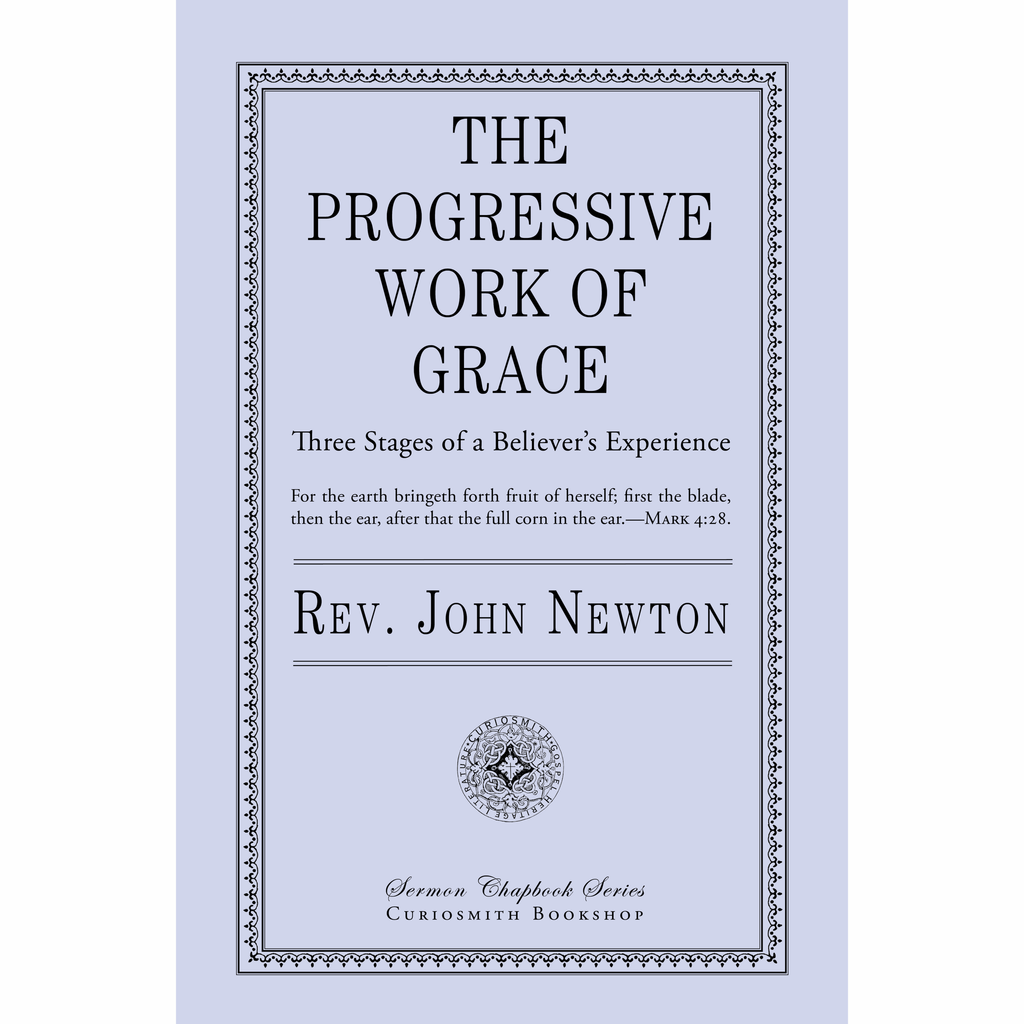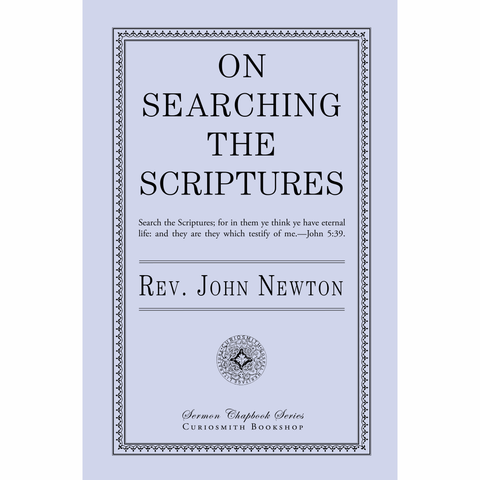
The Progressive Work of Grace: Three Stages in a Believer's Experience by John Newton
Rev. John Newton describes how God’s grace changes a person during the three stages of spiritual maturity found in Mark 4:28, of the Blade, the Ear, and the Full Corn in the Ear. The “Blade’s” characteristic is “desire,” or eagerness in his new life. The “Ear’s” characteristic is “conflict,” with many trials. The “Full corn in the ear’s” characteristic is “contemplation,” drawing upon much experience. Using this outline a believer can identify general states of sanctification to help work out their own salvation, as God works in them.
Paperback 5.25X8, 38 pages, ISBN 9781941281574
JOHN NEWTON (1725–1807) was born in London, England. His father was a sailor and John also spent many years on the sea. Early in his life he enjoyed sin and made provisions for it. This degraded him to be a slave of a slave-trader who was treated poorly. He was inspired by reading The Imitation of Christ, by Thomas à Kempis. On March 21, 1748, (March 10th using the pre 1752 Julian calendar) a stormy night at sea turned his heart toward God. He started a new life of prayer and Bible reading. Mary Catlett became his wife in 1750. He worked as a commandeer of a slave ship and then he became a tide surveyor in 1755. He started studying Greek and Hebrew and was sworn in as a deacon in 1764, and became curate at Olney. He had a financial benefactor in John Thornton of London, which allowed him many privileges for relief to the poor and to keep an hospitable open house. He was a swaying influence for many lives. He wrote a book of hymns together with William Cowper called the Olney Hymns which was published in 1779. He is most known for writing the hymn "Amazing Grace."




